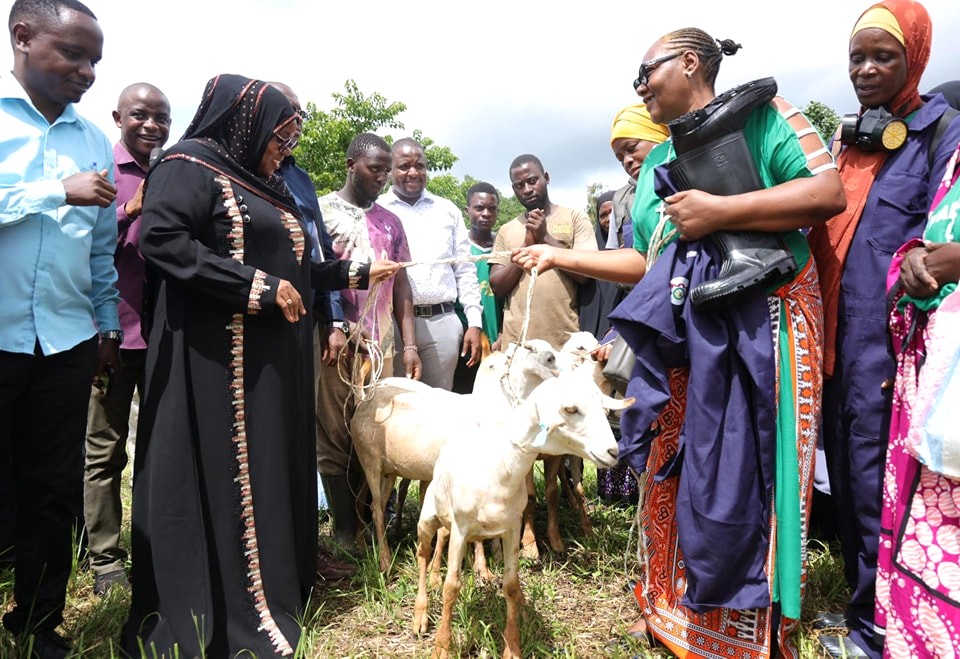Kwale County Governor Fatuma Achani has launched a major livestock initiative aimed at improving food security and building economic resilience in semi-arid regions. Through the World Bank-funded Kenya Marine Fisheries and Socio-Economic Development (KEMFSED) program, the County Government has distributed 5,000 Galla goats to over 1,000 pastoralist families in drought-prone areas such as Kinango, Samburu, Lunga Lunga, and parts of Matuga Sub-county.
The initiative is part of Kwale’s broader climate-smart strategy to support livelihoods where conventional agriculture is no longer viable due to prolonged dry spells. Galla goats were selected for their adaptability to arid environments and their high meat and milk yields, making them an ideal breed for boosting household incomes.
Governor Achani highlighted the transformative potential of the goats during the launch. “The Galla goats will change lives in our arid zones. Their resilience and high market value offer a dependable alternative for families whose traditional livestock have suffered under recurring droughts,” she said.
She urged recipients to take good care of the animals, viewing them as a long-term investment in their livelihoods. “We are investing in sustainable livestock farming to help communities thrive even in challenging climatic conditions,” she added.
County Executive Committee Member for Agriculture, Roman Shera, emphasized the importance of training and collaboration. “This initiative goes beyond goat distribution. We want farmers to engage with livestock officers for guidance, so the project yields lasting results,” Shera noted.
Local beneficiaries are already reporting positive changes. Benjamin Guo, a 70-year-old farmer from Kilimangodo village, praised the program for enhancing market value. “Previously, our goats fetched less than Ksh 4,000. Now, things are improving,” he said.
Others, like Rai Ndoro and Umazi Mwabugo, highlighted the fast growth and maturity of the Galla goats. “They mature quickly some can be sold or start breeding within eight months. This is a big step forward,” said Ndoro.
The program marks a significant investment in sustainable rural development, offering hope to communities grappling with the harsh effects of climate change.

